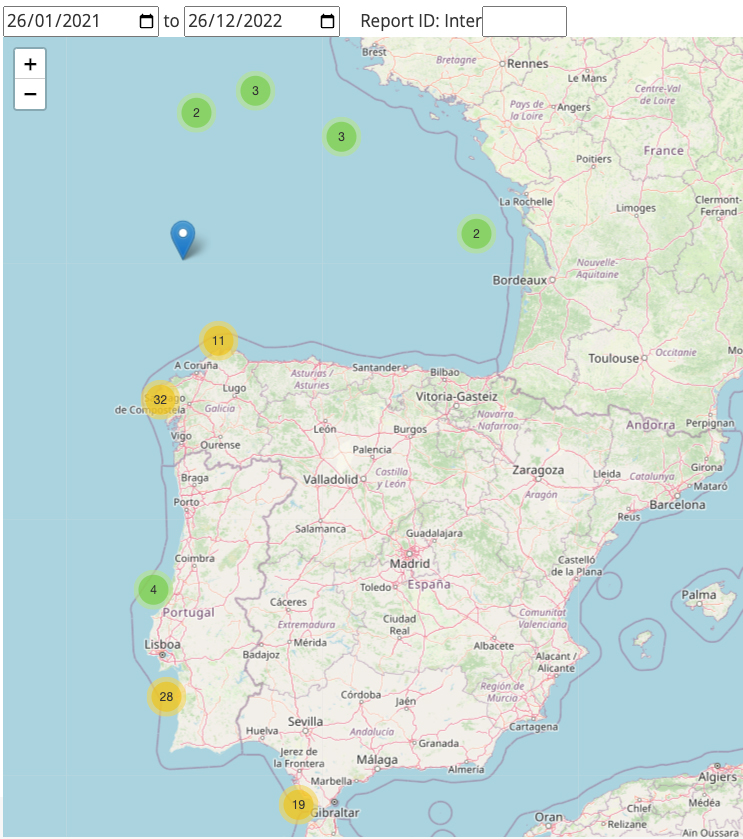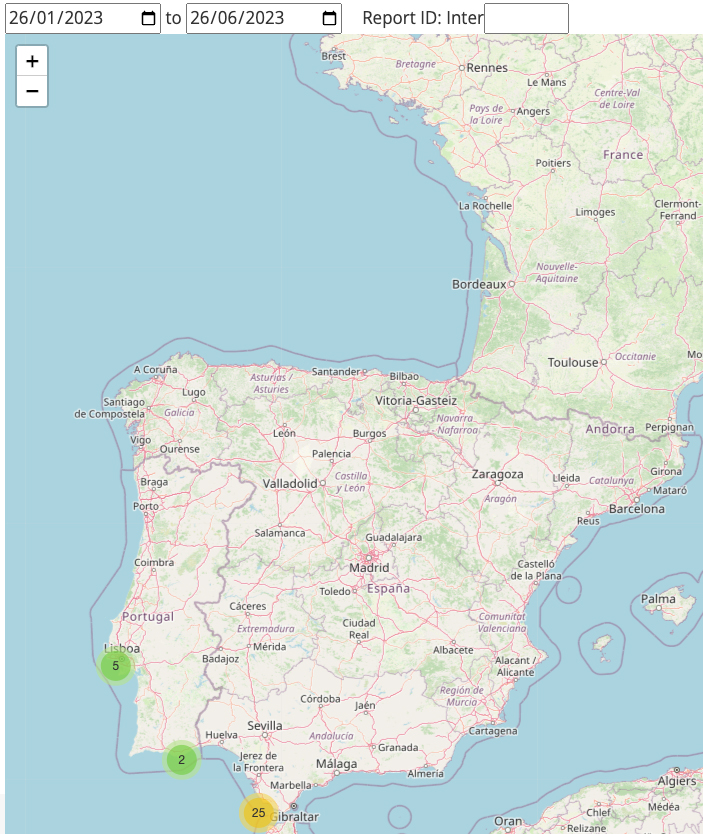If you are sailing in areas where orca incidents have occurred, the Spanish government is now advising that you should navigate as close to the coast as is safe, and in the event of an interaction, motor away as fast as possible towards shallower waters "until the orcas lose interest".
The advice was issued during June by MITECO, the Spanish Ministerio para la Transición Ecológica y el Reto Demográfico, the responsible ministry. Grupo Trabajo Orca Atlantica (GTOA) has requested information from MITECO on the reasoning behind this new advice.
The CA orca project team understands that a scientist studying orcas under a contract with MITECO has undertaken many runs with orcas at sailing yacht speeds but using motorboats. He reported that the orcas did not follow for long and that very little rudder damage was incurred. The CA does not yet know the details of the trials, the types of motorboats used or their rudder configuration.
At the moment, the Spanish and Portuguese governments are offering different advice. Alternatively, consider the advice from GTOA – slow down or stop, turn off the depth sounder and await developments.
- Spanish advice from MITECO – motor fast away from the orcas
- Portuguese advice from ICNF (Instituto da Conservação da Natureza e das Florestas) – stop the vessel or reverse away if you can
If you decide to navigate close to the coast you need to be very vigilant to avoid rocks, shallows and other inshore hazards including lobster pots.
The patterns of orca movement so far this year show most interactions clustered between Lisbon and the Straits of Gibraltar. In previous years by late June the orcas started moving west and north from the Gibraltar Strait up the Portuguese coast, which is what is happening now. See maps, left, taken from reports on the CA portal. Locations of orcas can be viewed via the GT Orcas mobile app available on Apple Store and Google Play, and the MITECO orca heat map. GTOA also publishes a traffic light map showing the likely location of orcas based on reports received, with the CA interaction map showing historic orca location data.

Interactions in 2021-2022

Interactions in 2023, to 26 June
The CA will continue to publish interaction reports on the CA orca portal - www.theca.org.uk/orcas – to help skippers decide the best course of action.
One unsubstantiated orca interaction has been reported in the northern North Sea by Dutch physicist Wim Rutten. He was sailing from Lerwick to Bergen and fishing for mackerel when a single orca repeatedly rammed the stern of his Koopmans 34. Details are limited, but the rudder and keel (which was lifted at the time) were undamaged.
3 July 2023
